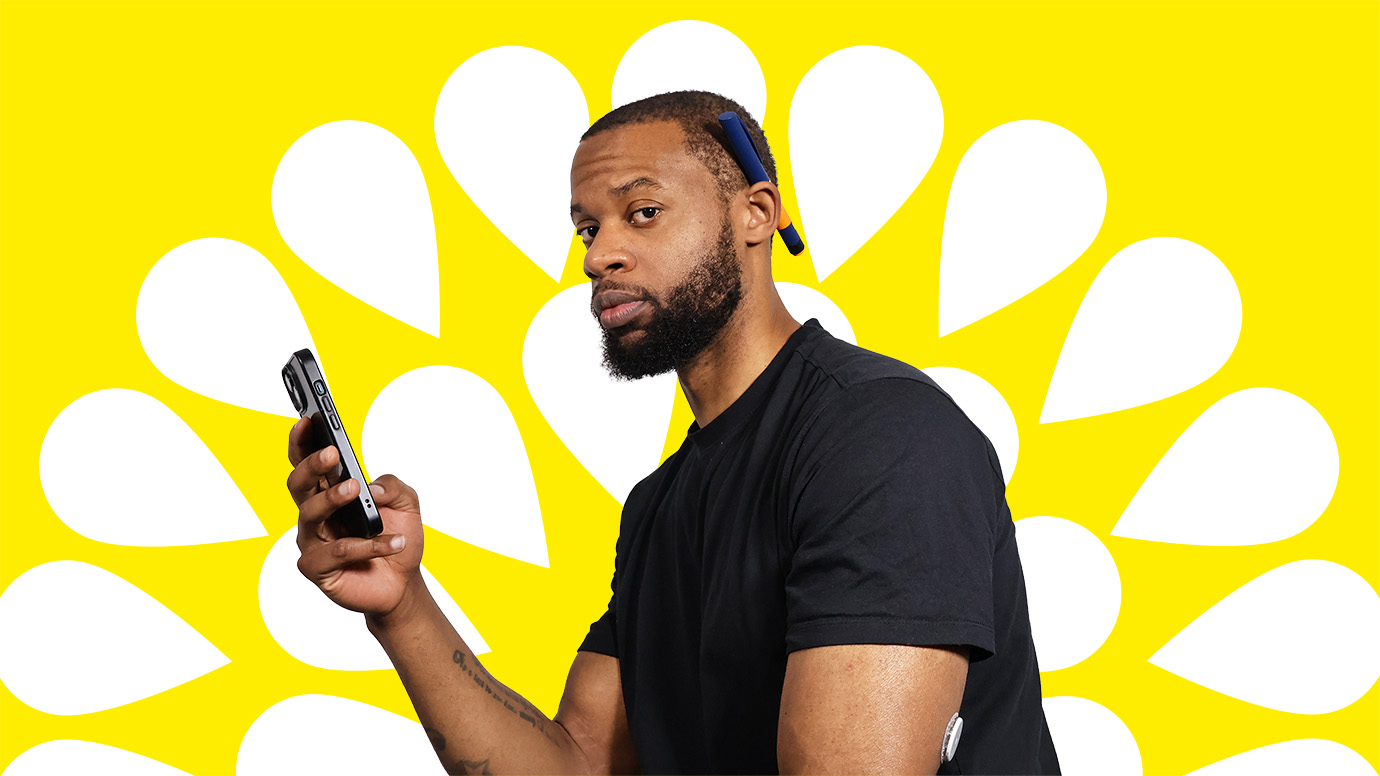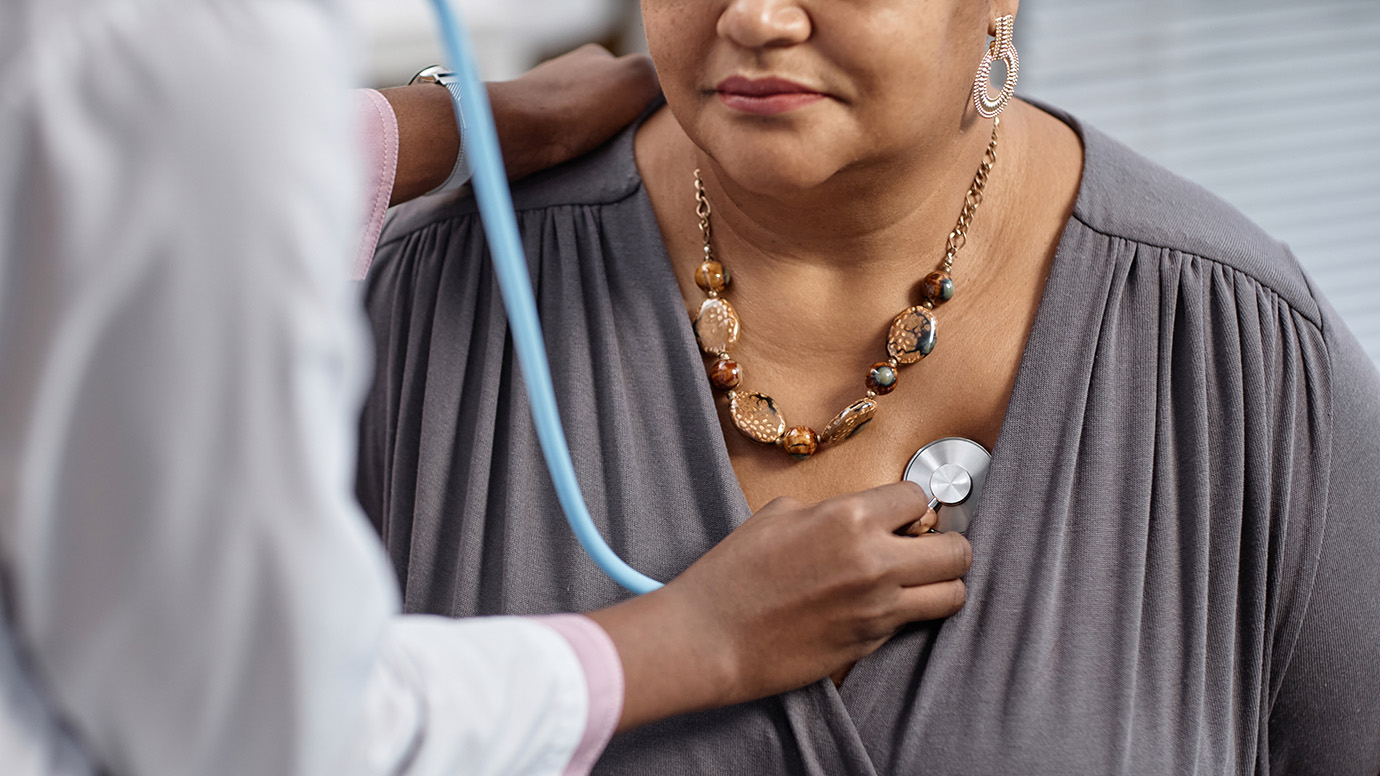Debunking 8 Common Myths About Diabetes Clinical Trials
Written by: Daniel Trecroci
8 minute read
February 19, 2025
Think of clinical trials as a treasure hunt! Doctors need brave explorers like you from all backgrounds to test new clues (treatments), and each step of the way, they ensure your safety. Don’t let a clinical trial myth hold you back. By joining a clinical trial, you’re helping discover treasures that could benefit everyone with diabetes.
At Beyond Type 1, we believe in the power of clinical trials to improve diabetes care. It’s okay to have concerns about participating in a clinical trial, but together, we can find the clinical trials that work for our circumstances, make a difference, and find better treatments—and maybe even a cure!—together.
What are clinical trials, and why do they matter for diabetes care?
- Clinical trials are research studies testing new medical interventions on people to evaluate their effects on health
- Breakthroughs in diabetes care, like modern insulins, continuous glucose monitors (CGMs) and GLP-1s, were made possible through clinical trials.
- Clinical trials ensure safety and effectiveness before treatments reach patients
Below are 8 common myths about clinical trials that we’re excited to debunk for you.
Myth #1: Clinical trials are only for people with ‘severe diabetes’
Some people believe that only people with “advanced” or “severe” diabetes can join clinical trials. This seems to come from people believing the clinical trials are always very invasive, so only those dealing with intense symptoms or complications from diabetes should participate.
Clinical trial myth debunked:
- Trials welcome people at all diabetes stages—some have specific enrollment rules to limit to a certain time living with diabetes or a certain average blood sugar range, but there are clinical trials for every stage and experience of diabetes.
- They explore lifestyle changes, new medications, treatments, possible preventions and possible cure therapies.
- Every participant plays a role in improving care.
Myth #2: Clinical trial volunteers are merely human guinea pigs
Clinical trial myth debunked:
Volunteers are partners in research, not just subjects. Their input helps improve treatments for everyone, including themselves.
- Ethical Guidelines and Respect
Researchers follow strict ethical guidelines, treating volunteers with dignity and monitoring their health and comfort. - Protections for Participants
Independent Review Boards ensure trials are safe and fair, protecting participants’ rights and health. - Contributions to Science
Volunteers help advance treatments for diabetes. Without them, many life-saving treatments wouldn’t exist. - Informed Consent:
Before joining a clinical trial, participants are fully informed about the trial’s risks and benefits.
Myth #3: Clinical trials are time-consuming and require you to live near a research center
Clinical trial myth debunked:
- Many trials are designed to fit participants’ schedules.
- Thanks to technology, remote monitoring and shorter visits are becoming more common.
- Trials vary widely. Some do require more in-person time at a research center or hospital, while many others just require sending in blood sugar logs and answering a few questions about your daily habits. All help improve future treatments and care for people with diabetes.
Myth #4: My personal information won’t be safe
Clinical trial myth debunked:
- Data privacy is a top priority: HIPAA laws protect your personal health information in clinical trials.
- Secure and limited sharing: Your details, like your name and medical history, are shared only with those directly involved in the study.
- Anonymity matters: Researchers follow strict rules to keep your information secure and anonymous whenever possible.
- No personal identifiers: Shared research data won’t include information that can identify you.
Myth #5: I might get a placebo instead of real treatment
Clinical trial myth debunked:
- In some studies, people might get a placebo instead of real medicine.
- This helps scientists see how well the real medicine works by comparing it to the sugar pill.
- Participants are informed about the possibility of receiving a placebo before they join, so they know what to expect.
- Plenty of diabetes clinical trials do not follow this model, instead providing all participants with access to the treatment or tool being studied.
- If a placebo causes harm or the treatment proves highly effective, the study may stop early to protect participants.
Myth #6: Being in a clinical trial won’t help me
Clinical trial myth debunked:
- Participating in some clinical trials can provide access to new treatments before they are widely available.
- Participants often receive extra medical care and monitoring; some people living with diabetes report that they experience more in-range blood sugar levels and better health outcomes when they are in trials for this reason
Myth #7: Clinical trials are dangerous
Clinical trial myth debunked:
Before a human clinical trial can start, it goes through a careful review to make sure it is safe for people to join.
- Tons of Core Research: Human clinical trials come after years and years of thorough research and testing; they are not allowed to reach human trials until safety has been shown every step of the way.
- Scientists Plan: Scientists create a detailed plan for the trial, explaining what they will do and how they will keep everyone safe.
- Expert Review: Then, a group of experts looks at the plan. They check to see if it is safe and if the study will help find new treatments.
- Ethics Committee: An ethics committee also checks the trial to make sure it treats participants fairly and protects their rights.
Myth #8: If I start a clinical trial, I cannot back out
Clinical trial myth debunked:
- Participants can leave a clinical trial at any time for any reason.
- Researchers respect participants’ decisions and understand that their circumstances might change.
The power of diversity: Why your participation matters
Your participation in clinical trials is important for better healthcare solutions for everyone.
When people from different backgrounds join trials, it helps create treatments that work for all.
Sadly, many diabetes trials don’t have enough diverse participants, which can lead to treatments that may not work for everyone.
We need your help to change that!
How to find a clinical trial that’s right for you
- If you have diabetes, start by talking to your healthcare provider about clinical trials.
- You can also check trusted sites like Antidote.
- Participation is voluntary, and support is available.
- By joining a trial, you’re advocating for better diabetes care and helping improve treatments for everyone.
This content was made possible with support from Vertex and Structure Therapeutics, active partners of Beyond Type 1 at the time of publication. Beyond Type 1 maintains editorial control over its content.

Author
Daniel Trecroci
Dan has written about diabetes for more than 20 years. He was one of Diabetes Health's first hires. Throughout his 10+ years as Managing Editor, he wrote/published thousands of articles and helped establish Diabetes Health as the premiere resource for people with diabetes. He later became the Content Manager for OneTouchGold—Johnson & Johnson/LifeScan’s official digital publication for its metering technology customers. Under his leadership, OneTouchGold received the Web Marketing Association’s award for “Best Health & Wellness" web site. Dan has also written for the Diabetes Research Institute, dLife, diaTribe, Healthline, CareDx, Pendulum Therapeutics, and Hero Bread.
Related Resources

A diabetes diagnosis can hit like a lightning bolt—especially when it’s type 1 diabetes and...
Read more

Valentine’s Day brings to mind all of the stereotypical visions: flowers, chocolates and an avalanche...
Read more

February is American Heart Month. It’s a time to raise awareness about heart disease, which...
Read more

